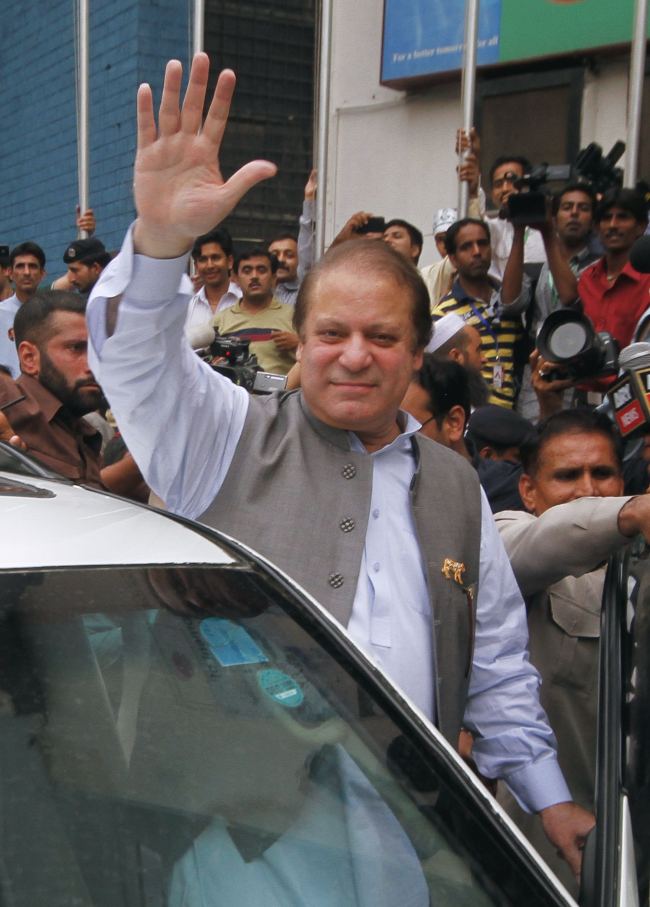[Newsmaker] Once-jailed Pakistani P.M. returns to power
By Korea HeraldPublished : May 13, 2013 - 21:01
Nawaz Sharif became the first man to earn a third stint as Pakistan’s prime minister after his Pakistan Muslim League-N won the largest share of seats in Saturday’s general election.
The election as a whole can be seen as progress for Pakistani democracy and a chance for Sharif to start over.
It was the first set of elections in the country after a full five-year term, and while voters’ verdict on the outgoing Pakistan People’s Party was damning, the completion of a term and democratic transition can be looked on as an achievement in itself.
The election as a whole can be seen as progress for Pakistani democracy and a chance for Sharif to start over.
It was the first set of elections in the country after a full five-year term, and while voters’ verdict on the outgoing Pakistan People’s Party was damning, the completion of a term and democratic transition can be looked on as an achievement in itself.

Now Sharif must deal with a daunting list of tasks, especially coping with insurgencies in the northwest and the economy. Pakistan needs to borrow from the IMF or World Bank to avoid defaulting on previous loans.
Sharif’s copy book is badly blotted. He was an unpopular prime minister when he was deposed in 1999, seen by many as corrupt and incompetent.
His battles with the courts and the country’s powerful military ended badly with a military takeover by Gen. Pervez Musharraf, who then imprisoned Sharif for hijacking a plane carrying the general.
But the lack of effective governance since then may have persuaded the public to be more forgiving of him.
His business background counts as an asset against old-money rivals as voters seek jobs. He also has a record of getting big infrastructure projects finished. Improvements are badly needed in a country that suffers frequent blackouts.
The tables are now turned and Musharraf is under house arrest.
How Sharif approaches the military now could be the most important aspect of his government ― whether he seeks revenge against the Army and against Musharraf or is more pragmatic in his approach.
Sharif favors talks with the Taliban, but the Army opposes this on the basis that talks have failed and fighting is the only option left.
He has also been vague on Islamic militancy and did not directly condemn Taliban violence.
But analysts say he is a pragmatist who is willing to work with the United States.
He may conclude that, as previous negotiations have failed and the U.S. holds sway over the IMF and World Bank, it might be better to side against the militants.
By Paul Kerry (paulkerry@heraldcorp.com)
-
Articles by Korea Herald



















![[Today’s K-pop] BTS pop-up event to come to Seoul](http://res.heraldm.com/phpwas/restmb_idxmake.php?idx=642&simg=/content/image/2024/04/17/20240417050734_0.jpg&u=)